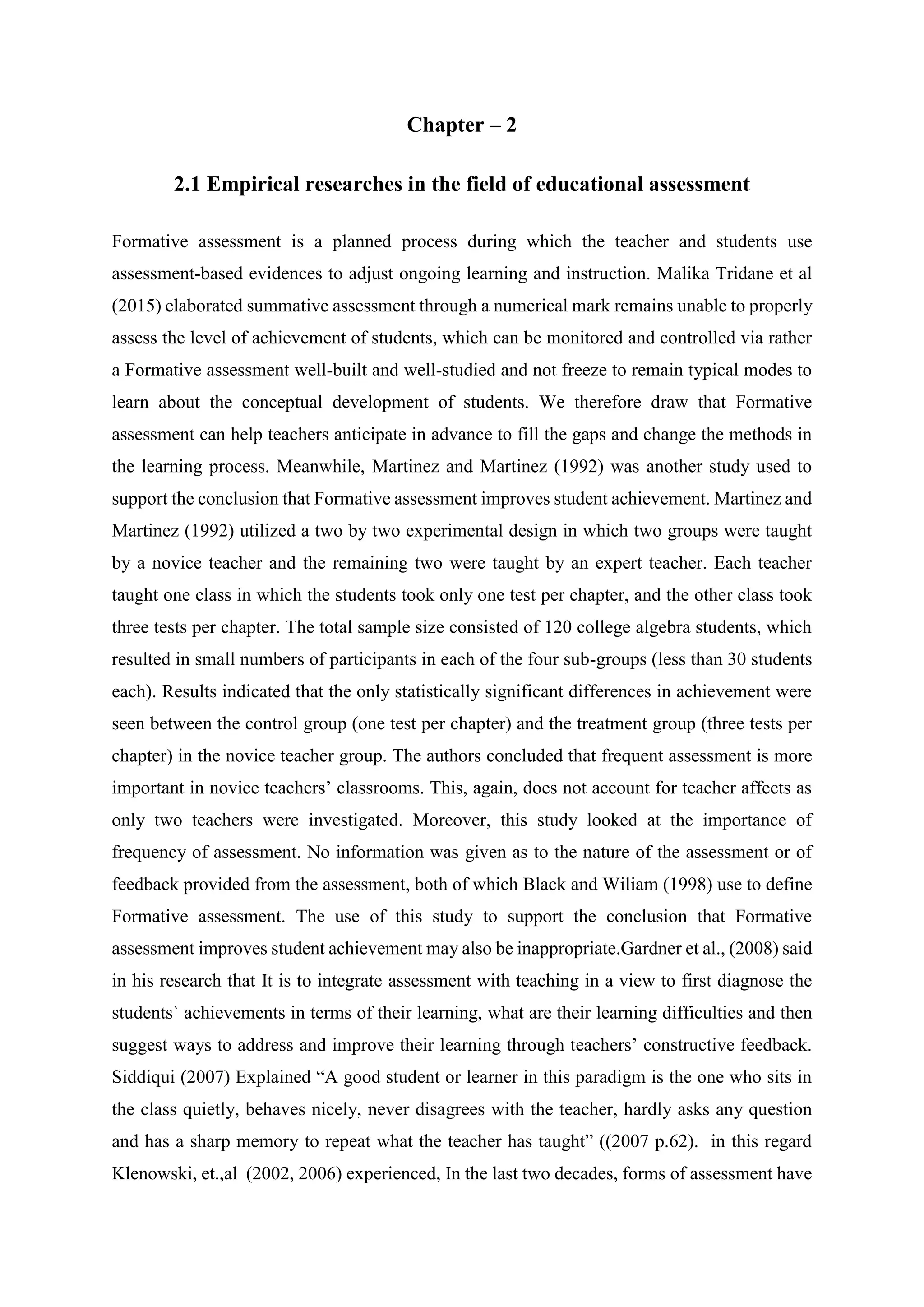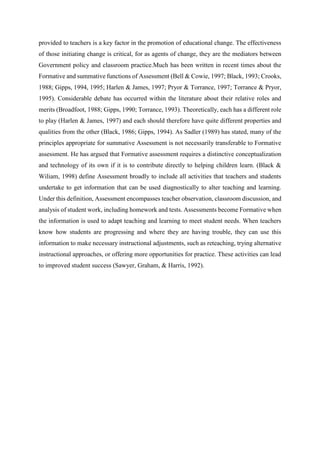1) The document discusses several empirical studies on formative assessment and how it can improve student achievement when integrated into teaching.
2) One study from 1992 found that frequent testing led to better results for students taught by inexperienced teachers. However, the study had limitations as it only involved two teachers.
3) Other research emphasized the importance of using assessment to diagnose student learning difficulties and provide feedback to support learning improvements.

![been revisited from a more quantitative to a more qualitative approach as approaches to
teaching are changing from transmission models to more constructivist and co-constructivist
approaches. Goolsby (1995) Expressed, various terms came to the forefront in the 1990s such
as “authentic assessment”, “alternate Assessment”, “performance assessment” and “direct
assessment” He opines that amongst them the alternative assessment is more generic and best
describes those methods of assessment that greatly differ from the traditional standardized tests.
He argues that through alternative assessment, students are examined through tasks that are
related to real life issues outside the schools and are of more value than the standardized tests
(see. p. 39). There is evidence that weak and unequal learning outcomes are widespread; for
this reason, the global demand from education stakeholders to measure student learning
outcomes is steadily increasing as it presents evidence on quality of teaching and learning.
Kellaghan et. al. (2009) recommended a series of actions that can help avoid the underuse of
assessment results and improve the overall quality of the assessment system: ‘integrate the
assessment activity into existing structures, policy, and decision making processes; involve all
relevant stakeholders in design and implementation of an assessment; make provision in the
budget for the dissemination, plan activities, and prepare a number of reports tailored to user
needs; ensure that the assessment team has the required technical competence and that relevant
stakeholders are involved from the outset; increase the likelihood of making findings public by
holding regular stakeholder discussions; integrate national assessment activity into policy and
managerial activities, and review findings to determine implications and strategies; [finally]
ensure adequate communication of findings to schools, review findings and devise strategies
to improve student achievement, and provide ongoing support for implementation’ (pg. 22).
Pryor & Torrance, (1997) recorded Formative assessment, as it is now conceptualized and has
come to incorporate notions of identifying progress and providing feedback to students through
the use of Assessment methods which will support and promote deep rather than surface
learning. Shepard (1995) has maintained that the introduction of an innovation such as
Formative assessment, will not necessarily improve learning. She has argued that to move
Formative assessment from rhetoric to reality every effort must be made to gain the support,
cooperation and commitment of teachers in its use. Of significance, are findings from other
studies which have shown that while teachers wanted help to translate Assessment principles
into practice. According to Gipps & James, (1996), generally they have been expected to
implement Formative assessment strategies with little support and few additional resources to
assist them in the process. According to (Broadfoot, Osborne, Panel & Pollard, 1996;
Mavromattis, 1996). As Willis and Bourke (1998) have argued, the quality of the leadership](https://image.slidesharecdn.com/chapter2-190503061048/85/empirical-research-2-320.jpg)
